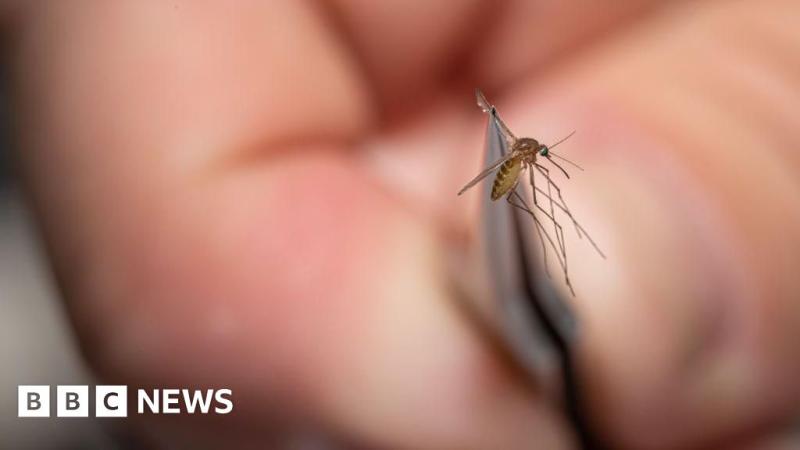Rare mosquito virus prompts US towns to close public parks
By: Ana Faguy (BBC)


It's gotta be serious when the disease is actually named EEE.

A rare but potentially lethal mosquito-borne virus has prompted nearly a dozen towns in the US to close public parks at night and restrict outdoor activities, when mosquitoes are most active.
Ten communities in Massachusetts are now designated at high or critical risk for eastern equine encephalitis, or EEE, that spreads through the bite of an infected mosquito, officials say.
There are currently no vaccines or medicines available to treat the "very serious" disease, also known as "Triple E", according to the Centers for Disease Control and Prevention.
Communities were put on alert after mosquitoes in the area tested positive for EEE and the state reported its first human case of the virus since 2020.
Public health officials say the disease was diagnosed in a horse in Plymouth, Massachusetts, which is what raised the town's risk level of EEE to high. A man in his 80s was the first to be infected and diagnosed on 16 August.
Between 33% and 70% of people will die from the disease if infected, with most deaths occurring two to 10 days after symptoms begin, according to the Massachusetts Department of Public Health.
Symptoms of the virus include diarrhoea, fever, headache, seizures and vomiting, according to the CDC.
"EEE is a rare but serious disease and a public health concern," Massachusetts public health commissioner Robbie Goldstein said in a statement. "We want to remind residents of the need to protect themselves from mosquito bites, especially in areas of the state where we are seeing EEE activity."
In an effort to try to control the spread, officials are aerial spraying the pesticide Anvil 10+10, which is an EPA-registered product used to control mosquitoes in the US.
State health officials are also urging people to avoid outdoor activities in the evening - peak mosquito time - until the end of September.
This is not the first outbreak of the virus in Massachusetts - there were 17 reported human cases of EEE and seven deaths in 2019 and 2020.
The disease is rare and only 11 cases are reported in the US annually, according to the CDC.
State health officials are warning that in addition to EEE, some eight municipalities in Massachusetts are considered to be at high risk for mosquitoes carrying the West Nile virus.
Cases of West Nile have been reported in more than 30 states and former director of the National Institute of Allergy and Infectious Diseases Anthony Fauci is among those infected by the virus. He is recovering at home after being in hospital for six days.





EEEeeeeeeeeeeeeeeeeeeeeeeeeeeeeeeeee !!!
I remember when DDT was used to combat mosquitos spreading malaria. But malaria hasn't gotten much attention since quinine became controversial. Now we have to worry about mosquito borne diseases brought here from around the world. We are a nation of immigrants, after all.
That was the 1950's when the USA virtually eliminated malaria from CONUS. DDT went on to become unpopular because of the careless ways it was applied and the resulting unintended consequences.
Quinie became controversial for the same reasons DDT did, same as too much gin in those famous gin and tonics British troops lived on in India and abroad.
Why make shyte up? EEE was "discovered" in 1831 in Massachusetts when 75 horses got sick, went a little mad and died.
The North American eastern strain is over 5.000 years old in genome terms, the Carribean version is only 2,000 years old.
Both kill dozens or hundreds of horses a year and about 4% of that number will be humans. People who do survive will wish they hadn't.
Immigration has nothing to do with EEE.